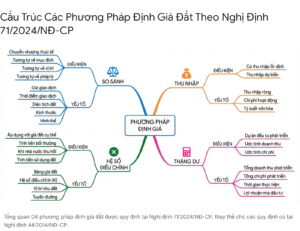Giấy chứng nhận quyền sử dụng đất gồm những thông tin gì? Các phần mềm in giấy chứng nhận quyền sử dụng đất là gì?

Creating a Comprehensive Guide to Vietnamese Law
If you’re looking to understand the nuances of luật in Vietnam, you’re in the right place. The legal framework in Vietnam is complex and ever-evolving, influenced by cultural, historical, and social factors. This article presents an in-depth look at luật in Vietnam, touching on various aspects, including its history, major principles, and the practical implications for individuals and businesses alike.
Understanding Vietnamese Law
Luật is the backbone of governance in any country, including Vietnam. It encompasses various codes, regulations, and frameworks that guide the behavior of its citizens and businesses. The foundation of Vietnamese law is rooted in its history, heavily influenced by colonialism as well as traditional values.
Vietnamese law operates primarily on a civil law system, which is characterized by its reliance on written statutes and codes. The Constitution of Vietnam serves as the supreme law, with laws enacted by the National Assembly. Understanding how these laws function is vital for anyone looking to navigate the legal landscape in Vietnam.
Historical Background
The journey of luật in Vietnam can be traced back to ancient times. Before French colonization, local customs and imperial decrees played a significant role in governance. During the French colonial period, many aspects of French civil law were integrated into the Vietnamese legal system.
Post-independence, Vietnam worked to establish a unique legal framework that reflected its socialist principles. The luật has evolved significantly since the Doi Moi (Renovation) reforms initiated in the1980s, which introduced economic liberalization and led to significant changes in the legal environment, especially concerning property rights and business laws.
Key Features of Vietnamese Law
-
Civil Code: One of the most critical components of luật in Vietnam is the Civil Code, which regulates various aspects of civil relationships, including contracts, property rights, and family law. The latest revision to the Civil Code reflects evolving social norms and aims to protect individual rights while promoting business efficiency.
-
Commercial Law: This area of luật governs business operations and trade practices within the market. It includes provisions related to business entities, contracts, and dispute resolution mechanisms.
-
Criminal Law: The Penal Code outlines criminal offenses and corresponding penalties, focusing on protecting public order and ensuring justice. This area of luật is particularly important for safeguarding citizens’ rights.
-
Administrative Law: This governs the actions of administrative agencies of government, detailing how laws are applied and the rights of individuals against administrative actions.
-
Labor Law: With a rapidly growing economy, Vietnam’s luật on labor protects workers’ rights while balancing the needs of employers, fostering a healthy work environment.
Recent Developments in Vietnamese Law
In recent years, Vietnam has made strides in enhancing its legal framework to support international integration. Several laws have been revised or created to streamline processes, improve regulatory transparency, and protect foreign investments.
The Investment Law, for instance, has been amended to provide clearer guidelines for foreign investors and introduce more favorable conditions for doing business in Vietnam. Moreover, Vietnam’s participation in various international trade agreements has necessitated adjustments in its luật, aligning it with international standards.
Navigating the Legal Landscape
For individuals and businesses operating in Vietnam, understanding luật is crucial. Here are some practical steps to navigate the legal landscape effectively:
-
Consult Legal Experts: Engaging with legal professionals who specialize in Vietnamese law can provide valuable insights and guidance. This is particularly important for foreign businesses looking to operate in Vietnam, as local attorneys can assist in navigating the complexities of regulatory compliance.
-
Stay Updated: Laws in Vietnam can change rapidly. Keep abreast of recent developments through reliable sources and legal channels, ensuring that you are informed about any changes that may impact your rights or business operations.
-
Understand Your Rights: Familiarize yourself with your rights and obligations under Vietnamese law. Whether it’s labor rights, property rights, or consumer protection, being aware of the legal protections available to you can be beneficial.
-
Document Everything: When entering contracts or agreements, ensure that all terms are documented clearly. This can prevent disputes and provide legal protection if disagreements arise.
-
Engage with Local Authorities: Building a relationship with local regulatory bodies can help facilitate smoother operations. Understanding how to approach these agencies can often make the process less cumbersome.
Conclusion
In conclusion, comprehending the intricacies of luật in Vietnam is essential for anyone looking to live or do business in the country. With its rich historical background, evolving legal framework, and recent developments, Vietnam’s legal system presents both opportunities and challenges. By staying informed and seeking professional legal assistance when necessary, individuals and businesses can navigate this intricate landscape successfully.
For further information and expert guidance on Vietnamese law, be sure to check out Legal Zone. This resource will help deepen your understanding and provide the necessary tools to engage with the legal system effectively.
Navigating the legal arena in Vietnam may seem daunting, but with the right guidance and insight, it can indeed be manageable. Stay informed, and make use of available resources to ensure compliance and protect your rights under Vietnamese law.









